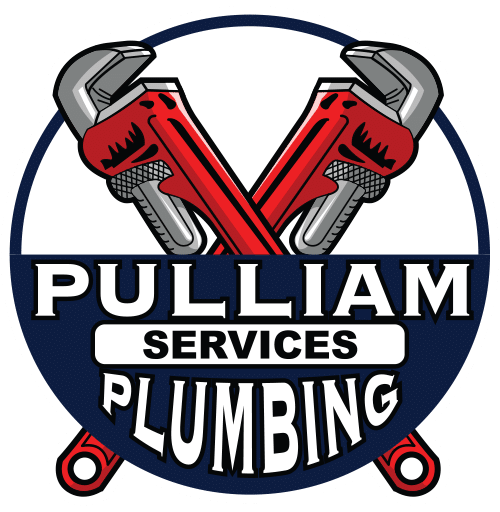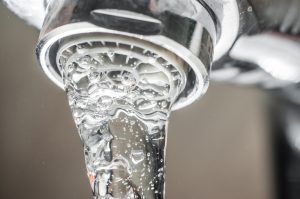Commercial enterprises throughout Boerne and Fair Oaks Ranch operate in one of the most challenging hard water environments in the United States, with mineral concentrations reaching up to 358 mg/L. This extreme hardness creates significant operational challenges that directly impact profitability, equipment longevity, and customer satisfaction. Understanding the comprehensive benefits of commercial water softening systems empowers business owners to make informed decisions that protect their investments and improve operational efficiency.
The True Cost of Hard Water in Business
Equipment Degradation and Replacement
Hard water’s mineral content accelerates wear on commercial equipment throughout Hill Country businesses. Coffee machines, dishwashers, ice makers, and HVAC systems experience reduced efficiency and premature failure when operating with untreated water. Restaurant equipment typically lasts 30-40% longer with proper water treatment, translating to significant capital cost savings.
Manufacturing and processing businesses face even greater challenges, as hard water interferes with product quality, cooling systems, and precision equipment. Scale buildup reduces heat transfer efficiency by up to 40%, forcing equipment to work harder and consume more energy while producing inferior results.
Hidden Operational Expenses
Many business owners underestimate the cumulative cost of hard water’s impact on daily operations. Increased chemical usage for cleaning, frequent equipment maintenance, and reduced efficiency compound into substantial hidden expenses that proper water treatment eliminates.
Restaurants spend 50-70% more on cleaning chemicals when operating with hard water, while laundry facilities experience fabric degradation and increased detergent costs that significantly impact profit margins. These ongoing expenses often exceed the cost of comprehensive water treatment systems within the first year of operation.
Industry-Specific Benefits Analysis
Food Service and Hospitality
Restaurants and hotels gain immediate benefits from commercial water softener installation, including improved food and beverage quality, spotless glassware, and enhanced guest satisfaction. Coffee and tea taste improves dramatically with softened water, while ice machines produce crystal-clear ice without mineral cloudiness.
Commercial dishwashers operate more efficiently with softened water, reducing chemical costs by 40-60% while producing consistently clean results. Linens and towels in hospitality applications last 30% longer and feel softer, improving guest experiences while reducing replacement costs.
Healthcare and Medical Facilities
Medical facilities require precise water quality for sterilization equipment, laboratory procedures, and patient care applications. Hard water interferes with sterilization processes and creates mineral deposits in sensitive medical equipment that can affect performance and compliance.
Water treatment systems designed for healthcare applications ensure consistent water quality that meets regulatory requirements while protecting expensive medical equipment investments.
Manufacturing and Processing
Industrial applications benefit significantly from water softening, particularly in cooling systems, boiler operations, and product manufacturing processes. Soft water prevents scale formation that reduces efficiency and causes expensive equipment failures.
Quality control improves dramatically when mineral interference is eliminated from manufacturing processes. Products maintain consistent specifications while equipment operates at designed efficiency levels throughout extended production runs.
Operational Efficiency Improvements
Energy Cost Reductions
Scale buildup from hard water acts as insulation in heat transfer equipment, forcing systems to work harder and consume more energy. Commercial water heaters, boilers, and cooling systems operate 15-25% more efficiently with softened water, providing immediate utility cost savings.
HVAC systems benefit significantly from water treatment, as cooling tower efficiency improves and maintenance requirements decrease. These improvements provide substantial cost savings for businesses with large climate control demands.
Maintenance Schedule Optimization
Equipment maintenance schedules extend significantly when hard water scaling is eliminated. Commercial dishwashers, ice machines, and coffee equipment require service visits 50-60% less frequently with proper water treatment.
Preventive maintenance becomes more effective when mineral interference is eliminated, allowing technicians to focus on actual wear issues rather than constant scale removal and component replacement.
Chemical Usage Efficiency
Cleaning chemicals work more effectively in soft water, reducing usage requirements by 40-70% across most applications. Soap, detergent, and sanitizing chemicals achieve optimal performance without mineral interference.
Laundry operations experience dramatic improvements in fabric care and chemical efficiency. Commercial laundries typically reduce detergent usage by 50% while achieving superior cleaning results and extending fabric life.
Customer Satisfaction Enhancements
Service Quality Improvements
Restaurants provide better-tasting beverages, cleaner glassware, and improved food quality when hard water minerals don’t interfere with preparation processes. Customer complaints about water taste, spotted glasses, and mineral deposits disappear with proper water treatment.
Hotels and hospitality businesses receive higher guest satisfaction ratings when showers provide better lather, linens feel softer, and facilities appear cleaner without mineral staining and buildup.
Product Quality Consistency
Manufacturing businesses achieve more consistent product quality when mineral interference is eliminated from production processes. Quality control becomes more predictable and customer satisfaction improves with consistent product specifications.
Food and beverage manufacturers particularly benefit from consistent water quality that ensures product taste, appearance, and shelf life meet specifications reliably.
Financial Return Analysis
Payback Period Calculations
Most commercial water softening systems provide complete payback within 18-36 months through reduced maintenance costs, improved efficiency, and extended equipment life. Businesses with high water usage or expensive equipment often see payback periods under 12 months.
Energy savings alone often justify water treatment investments, particularly for businesses with significant heating or cooling demands. Equipment life extension provides additional value that makes water treatment one of the most cost-effective business improvements available.
Long-Term Value Creation
Water treatment systems typically operate effectively for 15-20 years with proper maintenance, providing ongoing benefits throughout their service life. The cumulative savings over system life often exceed initial investment costs by 300-500%.
Property values increase with installed commercial water treatment systems, as potential buyers recognize the operational advantages and cost savings these systems provide.
System Selection and Sizing
Capacity Requirements
Proper system sizing requires analyzing peak demand periods, daily usage patterns, and water quality requirements for specific applications. Under-sized systems create operational bottlenecks during peak periods, while oversized systems waste resources and increase operating costs.
Professional assessment considers existing infrastructure, space constraints, and expansion plans to design optimal solutions for each business application.
Technology Options
Modern commercial water softeners include advanced features like programmable regeneration cycles, remote monitoring capabilities, and integration with building management systems. These features optimize performance while minimizing operational attention requirements.
Businesses with variable water usage benefit from demand-initiated regeneration systems that optimize salt and water usage while ensuring consistent water quality during all operating conditions.
Installation and Integration
Infrastructure Considerations
Commercial water treatment installation requires careful planning to minimize business disruption while ensuring optimal system performance. Professional installation includes bypass capabilities that maintain water service during maintenance periods.
Integration with existing plumbing systems requires expertise to ensure proper flow rates, pressure management, and code compliance throughout commercial facilities.
Regulatory Compliance
Commercial water treatment systems must comply with local health department regulations, environmental requirements, and industry-specific standards. Professional installation ensures compliance while optimizing system performance.
Documentation and maintenance records demonstrate regulatory compliance during inspections while providing data for system optimization and warranty compliance.
Maintenance and Service Programs
Preventive Maintenance Benefits
Scheduled maintenance programs ensure optimal water treatment performance while preventing costly system failures during peak business periods. Regular service includes salt replenishment, resin cleaning, and component inspection.
Preventive maintenance contracts provide priority service scheduling and predictable operating costs that enable better business planning and budget management.
Performance Monitoring
Modern commercial systems include monitoring capabilities that track water quality, usage patterns, and system performance. This data enables optimization and early problem detection that prevents business disruption.
Remote monitoring services alert businesses to potential problems before they affect operations, enabling proactive maintenance that minimizes downtime and repair costs.
Professional Implementation
Successful commercial water treatment requires expertise in system selection, installation, and ongoing maintenance. Pulliam Plumbing provides comprehensive commercial water treatment services throughout Boerne and Fair Oaks Ranch, with experience designing solutions for the unique challenges facing Hill Country businesses.
Our understanding of local water conditions and commercial applications enables us to recommend systems that provide optimal results for businesses of all sizes operating in our extreme hard water environment.
Understanding your business’s water treatment needs empowers you to make informed decisions that protect equipment, reduce costs, and improve operational efficiency. Proper water treatment represents one of the most cost-effective improvements available to Hill Country businesses operating in our challenging water quality environment.




